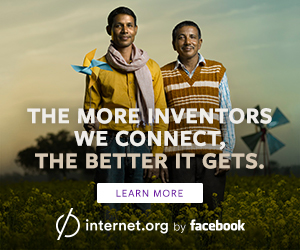We live in a hyper-connected society, but it is no longer just smartphones or computers, it is all the everyday objects that are part of our daily lives; kitchens that are turned off or on from a distance, cars that park themselves, toilets that clean themselves, gardens that light up when it gets dark, among many others. We are talking about the Internet of Things.
What is the Internet of Things?
The Internet of Things (IoT) is a concept that arises from the need to define the digital interconnections of everyday objects with the Internet, to turn them into intelligent objects.
The term was first used in 1999 by Kevin Ashton, a researcher at MIT, while he and his colleagues were conducting studies on radio frequency and sensor technologies. There has been talk of making everyday objects a little more interactive for 30 years. This is where the idea of the Smart Cities comes from.
The key to their operation is to convert “normal” objects into intelligent objects, allowing them to connect to the Internet to extend their functions.
For example, a washing machine is able to leave your clothes clean without effort, but for example, an intelligent washing machine allows it to be programmed remotely so that it can be used even when we are not at home, as well as, to collect statistics on the use that we give it so that it is more efficient.
Like washing machines, there are hundreds of objects that can be turned into smart objects thanks to the Internet of Things.
The purpose of these, is to create a network in which many users are using smart objects to obtain large amounts of data (Big Data) to help us optimize the behavior of entire cities. Therefore, it consists of connecting devices to each other via the Internet by sharing multiple data.
What is the Internet of Things for?
Without a doubt, the Big Data and the Internet of Things have a great relationship, since the sensors implemented in the so-called intelligent objects allow the collection and constant generation of data that, correctly analyzed, allow both the automation of processes in business management and decision making based on real situations and behaviors. Let’s give a few examples.
Let’s imagine that we have a business. Putting sensors at strategic points in the store, we will get real-time information from customers, ie how many there are, what product they are more interested in the area of the store where they move, among many other things.
But what use is this data to us? For example, to put offers for each customer and have them displayed on their mobile device, to send promotions segmented according to the interests of the customer, to make payments without having to go to the cash desk, etc.
The Internet of Things can also improve warehouse management. For example, putting a sensor on a shelf can serve as a warning in case the product on that shelf is out of stock, so we can order or replace it instantly.

Another example would be in logistics companies. These can obtain information about each of the phases of a shipment, as well as all the procedures involved, whether for distribution, packaging, arrival of goods, etc.
In this case, this data will not only serve us to improve customer satisfaction, but also to reduce costs, such as detecting the fastest routes.
The Internet of Things can also be used for the maintenance of installations or machines. An example would be lights that only come on when they detect movement.
In addition, sensors can also serve to warn that a machine or object is not working properly just before it breaks down.
These are just some of the many uses of the Internet of Things, but it will certainly make our lives easier.
Benefits of the Internet of Things for SMEs
The Internet of Things is becoming increasingly popular, not only in large companies, but also in SMEs where major investments are already beginning to be made. According to an IDC report, it is expected to reach almost 23 billion euros by 2020.
This is due to the impact that the introduction of the Internet of Things has, since it allows to facilitate the automation of processes, reduce operating costs or even improve the experience and satisfaction of the customer/user.
IoT has started to be used in the industrial sector, for example in logistics procedures, but it can also be used for other B2B and B2C applications in other market sectors.
Having objects or machines connected to each other allows the generation of relevant information to create intelligent installations such as factories, offices, shops and others.
How to implement a safe IoT platform
The Internet of Things is not a plug-and-play system, but it is necessary to implement an IT architecture, so factors such as hardware, software and the communications network come into play.
In case we want to implement a new business strategy based on IoT we will need the help of a company specialized in deploying IT infrastructures. Currently, with the significant increase in IoT in different companies, there are many proposals to easily implement an IoT connectivity platform.
One recommendation is that when we implement IoT systems we should take into account the safety of the devices, to avoid possible problems, since we are working with data. A serious problem could be the violation of the Data Protection Law, or data theft. Therefore, cyber security is essential.
The Internet of Things represents a great advance in the Digital Transformation for companies, since it means the creation of new and improved business models.











